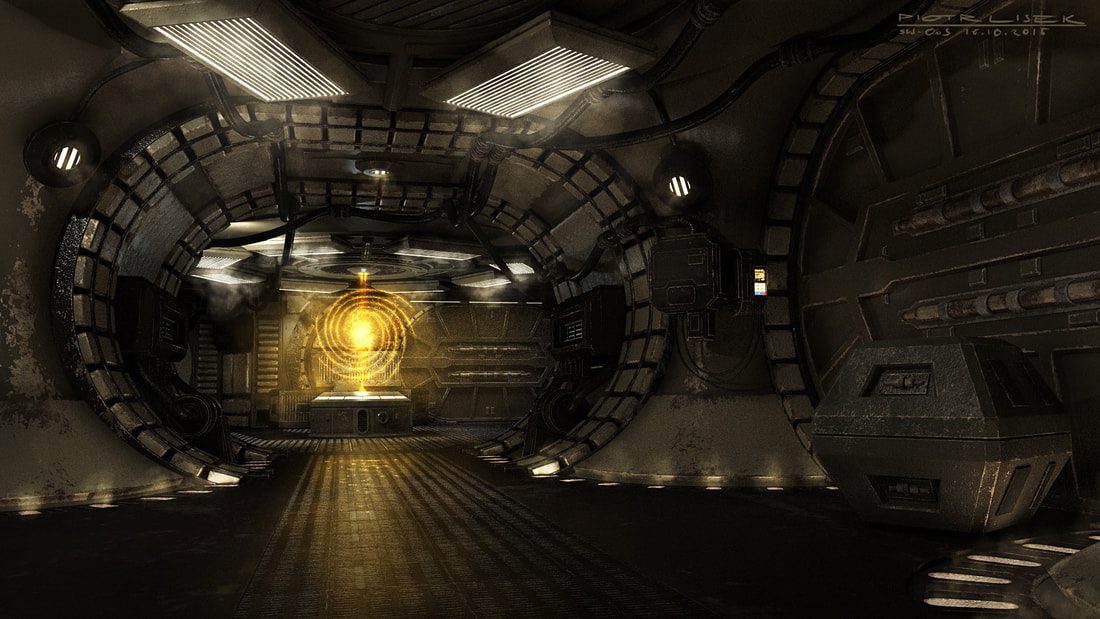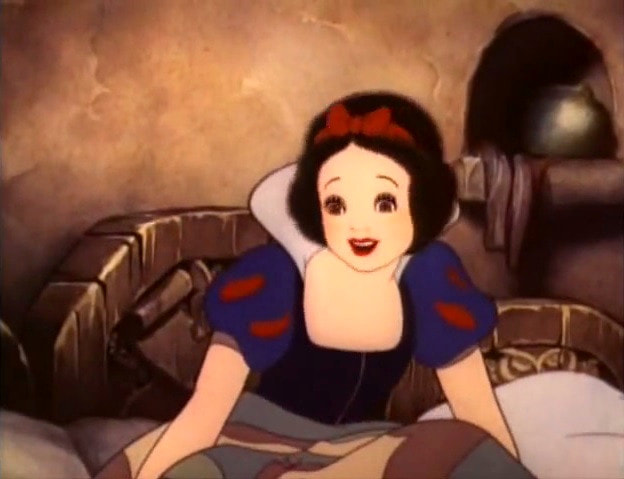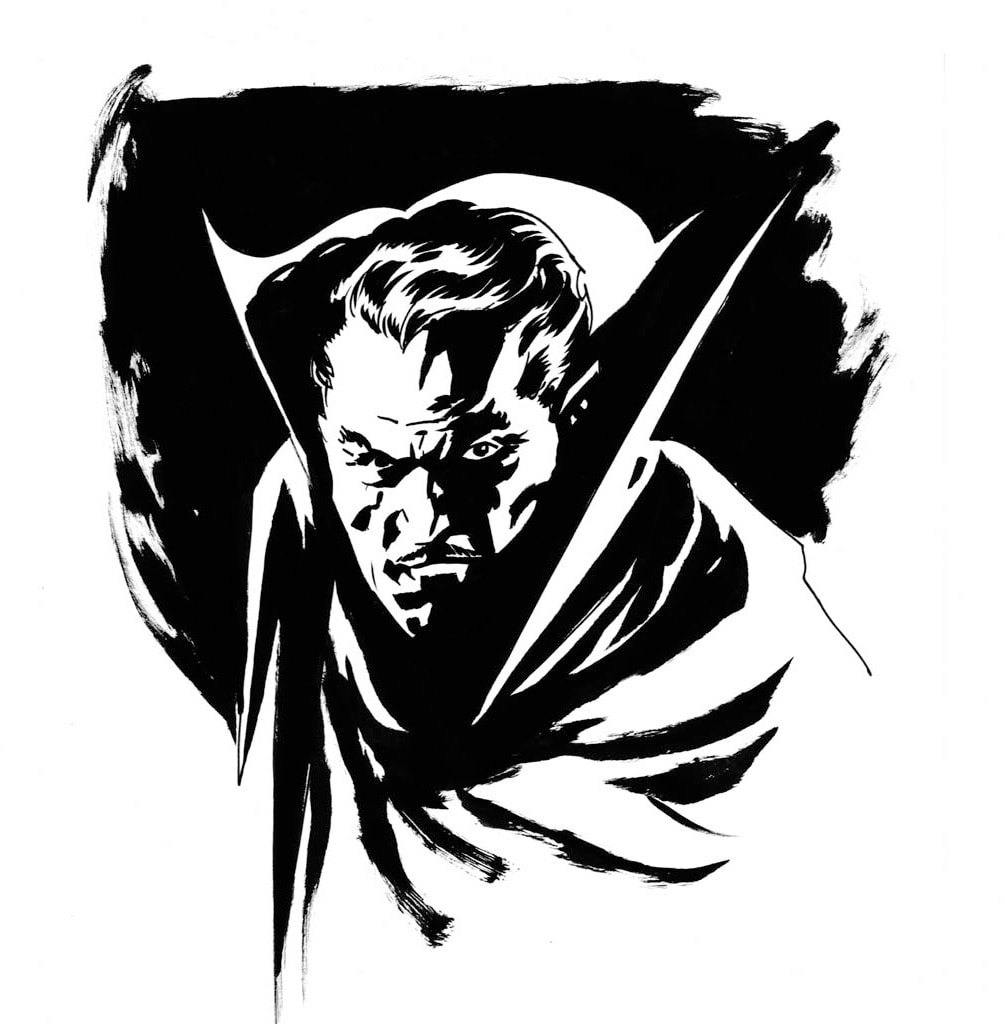|
Get ready for some puns: "archetype" and "orc-type" or, "Orchetype". Or - well, anyway. This is a silly piece. I hope you get a chuckle. “The Orchetype?” The name was as unimpressive as the ship itself, a squat, old bucket I wouldn’t trust to break orbit.
“My Lady’s little Joke,” replied the dwarf, puffing a bit from keeping up with my longer strides across the length of the spaceport. I’ve spent some time with dwarves, what with a little light syndicate work, some illegal asteroid mining ops, and a short stint as a bouncer in a Gabranian whore house. Doesn’t matter if they’re three spanners to the wind or stone cold sober, they’ll emphasize just about any Noun that can’t outrun a Capital Letter.
1 Comment
The prompt for this story was "Regret & Redemption". It's another short that could easily be a full adventure book. I especially like my main character. At the very end, there's a reference to later events - which is what a future novel would cover. Reader, I promised that even if in my writings I shield the reputations of some, I would never spare my own. By now, you have facts enough to judge me. In this next entry, I give you more and besides.
Among the men of action I have known, Braudus Flynt was deep in goblin lore. He knew the marks of every Eastern clan; was on fighting terms with every chieftain. Perhaps you’ve read the spurious accounts of him published by Professor Marriden. I swear to you, he was both nobler and sadder than you know. I traveled with Flynt. I fought beside him. He saved my life, and I cost him his. I love fairy tales, and I love to create new takes on them for a new era. Here is a twist on "Snow White" that I'm rather proud of. How did I meet your mother? You want to hear that old story. Are you sure you won’t be scared? Yes, you can sit in my lap. But if you fall asleep, I’m taking you straight off to bed.
Once upon a time, seven dwifes stood weeping around a crystal casket in a forest glade. Yes, that’s the right word: dwifes. Are you telling this story or am I? Inside the casket was the handsomest prince in the whole world, Stormwhite. I’m starting at the wrong place? Alright. We'll go farther back. Many times I write a short story and find it deserves a full book. This story of two small forest folk fighting pirates is an example. Maybe one day I’ll write that book. Night on the sea after the storm. The clatter and commotion of men working by lamplight to restore the shredded rigging of their crippled ship.
Lafttak climbs the ratlines, carrying whatever is needed to wherever the bigfolk want it. He may be a passenger, but he can help. Most laugh to see him lifting barrels of tar or coils of rope twice his height, and grunt their thanks, then make the evil eye when his back is turned. Greenfolk aren't very welcome on human ships. Another Fantasy-Faction contest winner, this one from December 2015. The story prompt was "Young Love". The Library of Alexander
The wizard’s apprentice sighed and took off her mistress’s magical translation glasses, then set down the last of the books she'd pulled from the Eternal Library’s shelves. "It’s not this one either,” she said to the boy sitting across from her. “The title translates to Gardening for Dragons, though it sounds much fiercer in firetongue.” It certainly wasn’t The Nightmare of King Barouk, which was the last book the wizard had sent her to find. She’d already fetched and delivered ten others, but her mistress would not stand for even the smallest failure from her apprentice. I almost used the title of this story as the name of my blog. Meanwhile, this was written for the November 2018 Fantasy-Faction.com challenge, in which we chose from several "ship" pictures and wrote a story about one of them. Enjoy. he lure of Aelf gold sent Marinhall to Mitgar’s dungeons and doomed the Grom. Stronger than steel and shinier than a seaman’s eye at the sight of dry land, a blades-worth of aelfgeld could ransom a king — or send a sailor beyond his charts, into the far unknown.
On a raw, miserable morning, we rowed Weaver out of Cape Vale harbor and pointed her prow to the frozen seas at the bottom of the world. Karadal stood in the bow, his silver hair flat against his skull, looking like death. I wheeled my chair next to the Aelf and secured it to the rail. He acknowledged me with a nod. “Captain Bucket.” “So,” I ventured. “What’s it like to live for a thousand years?” That last post was from a few years ago. Here is my most recent story, also written for Fantasy-Factions.com's story contest. This is for the prompt: "Unwelcome Gifts". "So, which birthday do you celebrate? When Lucy set this up, she didn’t tell me.”
“The second. I do not recall the date of my first birth. Years passed; the calendar men use changed. But I went back to the old country in the 1850s, and found my tomb once again, with the date of my death inscribed upon it. Cincisprezece Aprilie, Tteisprezece Optzeci i Trei” “Come again?” “Fifteen April, 1383.” This story was written for the Fantasy-Faction contest in May 2015. It was voted story of the year, and is one of my favorites. There once was a stepmother whose husband died, leaving her with his two children. They lived in a small apartment so smothered by other buildings that they rarely saw the sun, the moon or the morning star. She worked all day; then cooked, cleaned and checked homework each night, until falling at last into her lonely bed.
One morning, the children woke and found there was no breakfast ready nor lunches packed. They knocked on their stepmother’s bedroom door, but she was so tired that they couldn’t wake her. Finally, they dressed and went off to school, saying, “Mother needs her rest; let's be grown-up and walk to school ourselves.” As they walked, they saw meat vendors, pretzel carts, and donut shops. The stepson asked his sister, “Can't we get some breakfast?" But she said, "Hush, you know we have no money." At this, a little man in a tattered leather coat stepped up to them and held out a glazed donut that shone with sugar. “No money?” he said in a voice of silk and oil. “That’s not a problem. If you come with me, you can have all the food you want.” The girl refused, saying, “Our mother says we’re not to go with strangers. We just want to get to school.” But her brother was hungry, so he reached out and took the donut. As soon as he did, he turned into a donkey and began braying. The strange man hopped on his back, rode him off into an alley and disappeared. Back at the apartment, the stepmother woke and saw that it was very late. She called for the children, but no one answered. She was becoming frantic with worry when her stepdaughter rushed through the door. “A little man has taken my brother and turned him into a donkey!” she cried. “That is Moggmathkin,” said the stepmother. “He is a powerful wizard and drug lord, who uses children to do his bidding. Haven’t I told you never to speak with strangers? The city is a dangerous place.” “But you were asleep,” answered her daughter, “and we had to go to school.” The stepmother knew this was true. “I swear I will get your brother back,” she vowed. She walked her stepdaughter to school, called in sick for work, and set out for the warehouse where Moggmathkin lived. Outside the warehouse, some of the wizard's boys had a rat in a pen and were taking turns poking it with sticks. The stepmother strode up to them and said, “Aren’t you ashamed of yourselves for torturing a helpless creature? What would your mothers say?” The boys tried to be tough, but they shuffled their feet and let the rat go. The stepmother marched into Moggmathkin's lair. The little wizard was sitting on an enormous throne in a vast room filled with dust and cobwebs. She said, “Aren’t you ashamed of yourself for taking my stepson and turning him into a donkey? What would your mother say?” Moggmathkin replied, “I never had a mother, so I wouldn't know. I will keep your son to do my work, unless you buy him back from me.” Thinking to get rid of the stepmother easily, he said, “I will sell him to you for one stone from the sun, one tear from the moon, and one song from the morning star.” The stepmother went back into the street in despair, knowing there was no way she could meet the wizard's demands. She was sitting on a bench trying to think how to save her stepson, when she felt something tugging the cuff of her jeans. She looked down and saw the very same rat the guards had set free. The rat asked her, “What is the matter?” So she told him about Moggmathkin, her stepson and the impossible price. “Don’t worry,” said the rat. “As you helped me, so I will help you. If you follow my directions exactly, you will be able to free your stepson and destroy Moggmathkin. For three nights running, you must climb the highest buildings in the city and capture the sun, the moon and the morning star in a basin of water. Demand of them the treasures you need, but do not look directly at their faces or you will suffer greatly.” “How can I climb these buildings?” cried the stepmother. “Each has guards who will refuse to let me enter.” “Don’t worry,” said the rat. “I am not what I seem, but a fairy in disguise. Moggmathkin captured me and gave me to his boys for sport. But now I give you my cloak of transformation so that you can take my revenge and save your son.” He took off the cloak, and gave it to her. And behold, he was no longer a rat, but a fairy with a frog's head and goat's feet. He spun about three times and disappeared in a swirl of leaves. That night, the stepmother went to the tallest building in the city. She put on the cloak and became a cat to sneak past the guards at the door. She found the stairs and climbed. When she reached the roof it was morning. She set a basin of water before her and caught the sun’s reflection. “Who has caught me?” demanded the sun in a voice of flame and fury. “It is a mother who must fight for her child,” said the stepmother, not daring to look directly into the water. “Give me just one sunstone, and I will set you free.” The sun looked and saw that the world was turning to ash because he was staying too long in one place, so he dropped a golden sunstone into her basin. The stepmother took the stone, dashed the water onto the roof, and released him to continue on his journey. On the second night, the stepmother went to the second tallest building in the city. She put on the cloak and became a mouse to run through the door. She found the stairs and climbed and climbed. When she reached the roof it was midnight. She set the basin before her and caught the moon’s reflection. “Who has caught me?” demanded the moon in a voice cold as the deeps. “It is a mother who must fight for her child,” said the stepmother, not daring to look at the moon. “Give me just one of your tears, and I will set you free.” The moon looked and saw that the seas were rushing over their banks because she was staying too long in one place, so she dropped one of her diamond tears in the basin. The stepmother dashed out the water, took the diamond, and the moon continued on her journey. On the final night, the stepmother went to the third tallest building in the city. This time she became a beetle and skittered past the guards and under the door. She found the stairs and climbed and climbed. When she reached the roof it was just before dawn. She set the basin of water down and caught the light of the morning star. “Who has caught me?” whispered the star in a voice of heartbreaking beauty. “It is a mother who must fight for her child. Teach me one of your songs, and I will set you free.” The morning star looked into the stepmother’s heart and fell deeply in love. “I will teach you one of my songs, but you must look at me directly.” Forgetting the fairy's warning, the stepmother looked at the star and was pierced to her soul. “Take my song," said the morning star, "and then come back to me.” With the sun’s stone, the moon’s tear and the star’s song, the stepmother made her way to Moggmathkin's warehouse. She strode in and found him sitting alone. “I hope you haven’t come to beg,” he said, “For I have no pity, and you cannot have your son unless you pay my price.” The stepmother placed the sunstone in the little man's hand. It turned to flame and burned him from his fingertips to his bushy eyebrows. She placed the moon’s tear on his chest, and its icy touch froze him from his black heart to the soles of his feet. Finally she whispered the morning star’s song in his ear, and he wept with shame for all the terrible things he'd done. “Take your son,” cried Moggmathkin, “and leave me.” The stepson rushed into the room and the two of them ran home, where the stepdaughter laughed with happiness to see them. That night, the stepmother climbed again to the roof of the last of the buildings. She looked and saw the morning star shining on the distant horizon. “I cannot join you,” she whispered. “I still have work to do.” She waited there until the star faded away. Then she dried her eyes, straightened her shoulders, and went back to her children. I've been writing Fantasy and Science Fiction short stories since November 2014, with just about one every month for the www.fantasy-faction.com/forum contest. This site is where I'll post those stories plus others, and maybe, one day, links to my own full-length novels. But for now, I hope you'll enjoy my tales.
|
AuthorI write because it's the most fun I can have legally. Archives
April 2020
Categories
All
|
Proudly powered by Weebly








 RSS Feed
RSS Feed